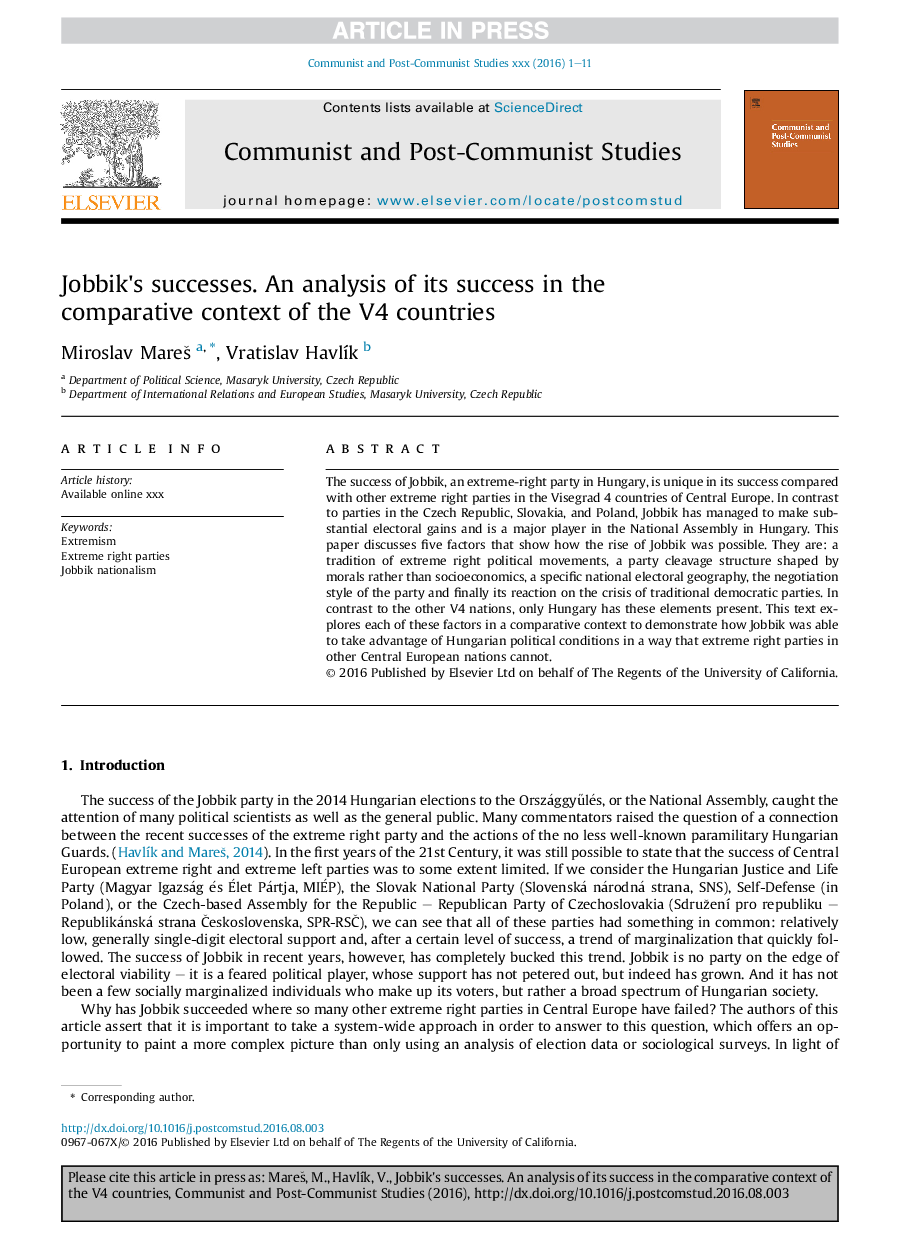| Article ID | Journal | Published Year | Pages | File Type |
|---|---|---|---|---|
| 5114256 | Communist and Post-Communist Studies | 2016 | 11 Pages |
Abstract
The success of Jobbik, an extreme-right party in Hungary, is unique in its success compared with other extreme right parties in the Visegrad 4 countries of Central Europe. In contrast to parties in the Czech Republic, Slovakia, and Poland, Jobbik has managed to make substantial electoral gains and is a major player in the National Assembly in Hungary. This paper discusses five factors that show how the rise of Jobbik was possible. They are: a tradition of extreme right political movements, a party cleavage structure shaped by morals rather than socioeconomics, a specific national electoral geography, the negotiation style of the party and finally its reaction on the crisis of traditional democratic parties. In contrast to the other V4 nations, only Hungary has these elements present. This text explores each of these factors in a comparative context to demonstrate how Jobbik was able to take advantage of Hungarian political conditions in a way that extreme right parties in other Central European nations cannot.
Keywords
Related Topics
Social Sciences and Humanities
Social Sciences
Development
Authors
Miroslav MareÅ¡, Vratislav HavlÃk,
